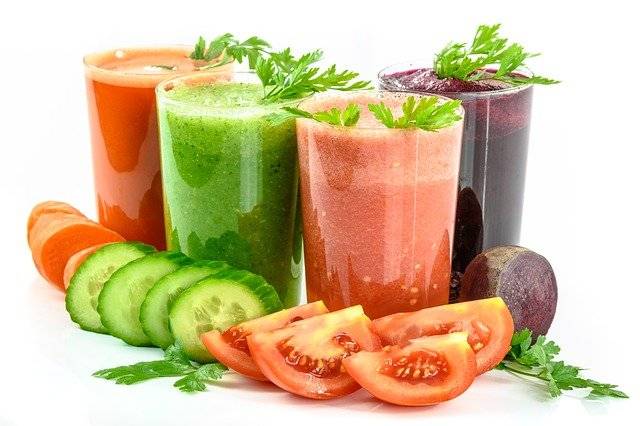At The Good Veggie you will find all kinds of information related to your vegan lifestyle that respects the environment and animals.We update the content daily, which is produced by our editors and contributors.
The content of our Vegan Blog is 100% original content. Come in, get informed and have fun.
Basics of veganism
We will now review the main points of our lifestyle.
What is veganism?
Veganism is simply the abandonment of animal products in both diet and lifestyle..
The International Vegetarian Union has a good explanation of ethical vegetarianism:
In the context of diet, it refers to the practice of avoiding all animal products, including meat, fish, poultry, eggs, animal milk, honey and its derivatives.
Why do people adopt a vegan lifestyle?
There are many reasons why a person may choose a vegan lifestyle. Estas son algunas de las razones éticas por las que la gente decide llevar un estilo de vida vegano.
- Animal welfare issues and opposition to the use of animals as commodities.
- environmental problems directly related to animal agriculture (such as pollution of air and water sources by factory farms), and to help reduce excessive consumption of resourcesincluding land, water and fossil fuels.
- Adopt veganism as part of the solution to world hunger through a more efficient use of our planet's food resources.
Dietary vegetarians may choose to follow a plant-based diet for health reasons..
What does a vegan eat?
These are just a few examples of foods consumed by vegetarians.
- Various fruits: apples, oranges, berries, mangoes, pineapples, grapes, papaya.
- Vegetables: asparagus, kale, broccoli, carrots, celery, zucchini, spinach.
- Nuts and seeds. Almonds, cashews, walnuts, pumpkin seeds, sunflower seeds, peanut butter, almond butter.
- Carbohydrates: potatoes, pasta, bread, rolls, pita bread, buns, rice, quinoa.
- Legumes and vegetables: tofu, woolly beans, chickpeas, black beans, chickpeas, lentils.
- Non-dairy milk: coconut milk, almond milk, soy milk, hemp milk, oat milk.
- Chocolate: many types of dark chocolate, and non-dairy chocolate made with coconut, soy or rice milk.
- Fast food: French fries, onion rings, potato chips, cookies, cakes, candy (check ingredients, many are vegan).
- Alternatives to dairy products: coconut ice cream, almond and coconut yogurt, coffee cream, vegan cheese and cream cheese, vegan butter.
- Alternatives to meat: veggie burgers, deli sandwich slices, tempeh bacon, vegan sausages.
As interest in the vegetarian movement grows, the vegetarian movement has, it is becoming easier and easier to go vegan. As recipe creators, chefs and food bloggers find new ways to "veganize" popular foods, the food industry offers a growing number of delicious and compassionate vegan alternatives.
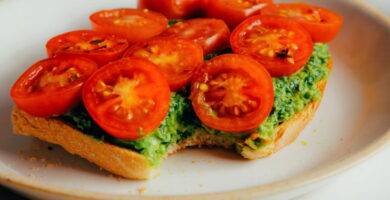
Vegan pesto toasts with tomato and avocado
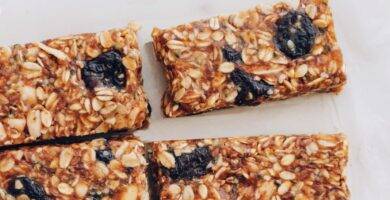
Cherry and Almond Granola Bar Recipe
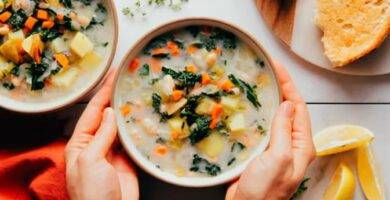
Vegetarian White Bean Soup Recipe
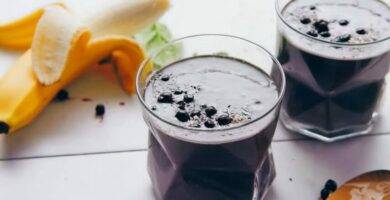
Vegan protein shake with blueberries and peanut butter

Vegan Moussaka Recipe

Easy Vegan Cheddar Cheese Recipe
What is not included in the vegan lifestyle?
A vegetarian diet excludes all animal products, including meat, poultry, seafood, dairy products, eggs, honey and honey products.
A vegetarian lifestyle involves avoiding animal products in daily life and diet. This includes, but is not limited to
- Products tested on animals.
- Textiles of animal origin, such as silk or wool..
- Leather, suede, down and fur.
- Personal care products containing ingredients of animal origin (beeswax, keratin, lanolin, etc.).
- Animals used for entertainment purposes (circuses, rodeos, etc.).
It is important to stress that it is almost impossible to avoid all animal products and to return to the International Vegetarian Union's explanation of veganism: "Veganism can be defined as a way of life that aims to exclude, as far as possible and practicable, all forms of exploitation and abuse of animals for food, clothing or other purposes." Veganism is not a matter of labels.
Benefits of the vegan lifestyle
There are several specific reasons for choosing a vegetarian lifestyle. If you are considering making the transition to veganism, it is important to consider your ethics and what makes this lifestyle attractive to you.
A significant lifestyle change is more likely to stick if you believe wholeheartedly in your decision. Think about the standards you apply to yourself and what guides you in deciding what is right and what is wrong.
Health benefits of a plant-based diet
A vegan diet can be one of the healthiest ways to live. A plant-based diet should contain plenty of fresh fruits and vegetables, whole grains, legumes, nuts and seeds.
Since vegan diets tend to rely heavily on these healthy staples, they are richer in vitamins, minerals, photochemicals and fiber. A healthy vegetarian diet is rich in vitamins B1, C and E, folic acid, magnesium and iron, as well as being low in cholesterol and saturated fats.
A plant-based vegetarian diet can reduce the risk of death from diseases such as:
- Type 2 diabetes.
- Cardiovascular diseases.
- Heart disease.
- High blood pressure.
- Obesity.
- Certain cancers, such as prostate and colon cancer.
A vegan diet is healthy for people of all ages,including children, pregnant and lactating women, and the elderly.
It is important to note that vegetarians should pay special attention to their diet to avoid deficiencies of certain nutrients. With a planned vegetarian diet, the risk of deficiency is minimal.
Effects on the environment and natural resources
At some point in our evolution, eating meat was essential for our survival. That is one of the reasons we are here today, however, our environment will no longer be able to sustain the current level of food production.
Raising, growing and feeding animals for food is a very inefficient use of our natural resources. More than half of the world's crops are used to raise animals for food.
As our population grows, we need more and more space for agriculture. 60% of global deforestation is due to land conversion to agriculture, many of which are used for grazing.
An estimated 14% of the world's population (over 850,000,000 people) is undernourished, and we continue to waste valuable land and agricultural resources in the production of animal products, extracting only a fraction of their potential caloric value. Continuing this senseless exploitation of our natural resources is simply unsustainable.
A vegan lifestyle will help reduce air pollution and relieve pressure on natural resources by reducing demand for land, fossil fuels and water. With the world's population expected to reach 9 billion people by 2050, a widespread vegan lifestyle is the most effective way to reduce environmental stress. and can be absolutely critical to our survival as a species.
Nutrition and vegan diet
A well-planned and nutritionally balanced vegan diet will successfully meet the nutritional needs of almost anyone at any age. There are many misconceptions about vegan diets, but the truth is that this healthy diet can give you all the energy you need.
Protein
Almost all foods contain at least a small amount of protein. Whole grains, legumes, soybeans, nuts and seeds are excellent sources of protein.
A simple peanut butter and banana sandwich on two slices of whole wheat bread contains between 18 and 22 grams of protein. By eating a variety of plant-based foods, a vegetarian's diet can meet or exceed the recommended protein intake.
In a plant-based diet, an intake of 0.9 grams per kilogram of body weight is recommended. It should be taken into account that very active people may need more protein to maintain their activity levels.
Complete and incomplete proteins
Complete proteins contain the correct proportion of the 9 essential amino acids necessary for human nutrition..
Almost all plant foods contain all 9 essential amino acids, but in varying proportions, so most are considered incomplete. Our body can combine complementary incomplete proteins if consumed within 24 hours, but deliberate combination is not necessary.
If your caloric needs are met, consumption of almost any plant food (except fruit) will provide a sufficient amount of each essential amino acid to meet human needs.
Basically, if enough energy is consumed, i.e., enough calories are ingested, it is almost impossible to have a deficiency of any of the amino acids..
Calcium
Obtaining sufficient calcium in a vegan's diet can be achieved by eating a balanced diet full of nutrient-rich foods, adding calcium-fortified foods or taking supplements.
Many commercially available foods, such as soy milk, tofu, juices, cereals and breads, are fortified with calcium. A daily intake of 1,000 mg of calcium is recommended for men and women aged 19 to 50 years.
It is important to note that adequate vitamin D intake is essential for proper calcium absorption.
Iron
Many plant foods are naturally rich in iron, and there are many packaged foods, such as cereals, meat substitutes and breads, that are fortified with additional iron.
There are many factors that can affect the body's ability to absorb iron, so it can be difficult to determine how much of the daily iron intake is used by the body.
Vitamin B12
Vitamin B12 is produced by bacteria and fungi. Many plant sources of vitamin B12 are destroyed by sterilization procedures and cleaning standards used in food production.
For this reason, vegans must rely on fortified foods or supplements to obtain the necessary amount of B12. Our body is very efficient at recycling B12; about 65-75% of the B12 consumed by our body is reabsorbed by the body.
People can live for years without a source of B12 in their diet, but all vitamins are vital to health and it is extremely important to include a reliable source in your diet.
Most people need about 2.4 micrograms of vitamin B12 per day.
Vitamin D
Few foods contain vitamin D naturally.
For sufficient vitamin D intake, 10-45 minutes of unprotected sunlight on the face and hands is sufficient to convert sufficient pre-vitamin D into vitamin D.
It may also be necessary to eat foods fortified with vitamin D2 or take vitamin D supplements. Look for plant-based vitamin D2 in fortified foods and supplements and avoid vitamin D3, as it is animal-based.
The recommended daily intake of vitamin D is 800 IU.

Pancakes Oreo Vegan

Soup Minestrone Vegan
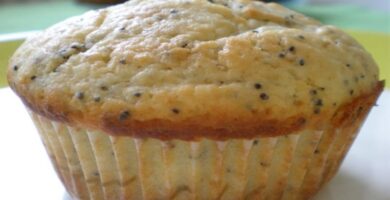
Vegan banana and coconut muffins recipe
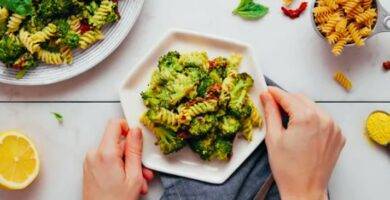
Vegan pasta salad with roasted broccoli with pesto recipe
Should I take supplements?
A balanced and healthy diet, including a variety of foods and sufficient caloric intake to meet energy needs. The diet should ensure an adequate intake of protein, calcium and iron.
- ➤ CEREBRO Y VISIÓN NORMALES. Una mente preparada y una concentración aguda son vitales cuando estás viviendo aventuras. Nuestra fórmula nórdica contiene ácidos grasos Omega 3 - incluyendo DHA. La dosis diaria recomendada (3 cápsulas) provee 600 mg de DHA 300 mg de EPA
- HIGH FORCE, PREMIUM QUALITY FORMULA contains 50 mcg of Vitamin B12, 20 mcg of D3, 75 mcg of K2 plus a high dose of 20 other vitamins and minerals. More than you'll find in many other multivitamins.
It is important to include a reliable source of vitamin B12, vitamin D and iodine in the diet, and this can be achieved by an appropriate combination of fortified foods, vitamin B12, vitamin D2 and seaweed supplements, or by eating a good vegetarian diet. Daily intake of multivitamins can be easily achieved.
A multivitamin can be considered a kind of insurance for a healthy diet. In most cases, you want to do everything you can to eat a balanced, nutrient-rich diet, but taking a multivitamin will ensure that you don't experience nutrient deficiencies even if you're not eating a complete diet.
Transforming to a vegan lifestyle
You've decided you want to go vegan, but where do you start? The transition to a vegan lifestyle can seem really overwhelmingThe idea of a major lifestyle change is often much more frightening than the actual change.
If you focus on making one change at a time, the transition to veganism will be very natural. The important thing is to move at your own pace and choose the approach that best suits your needs.
Here are some ideas and guidelines for structuring your transition to vegetarianism, but be sure to adapt them to your own needs.
- BENEFICIOS PARA TU PELO - Tratamiento profesional completo de regeneración y rejuvenecimiento del cabello con extracto de células madre vegetales. Mejora la salud capilar desde el interior de la fibra, gracias a sus propiedades antioxidantes que revitalizan tu melena.
- RECUPERA TU PIEL JOVEN - Las arrugas y las líneas finas reducen tu belleza. La crema antiedad con ácido hialurónico y aloe vera orgánico y aceite de jojoba orgánico de MOTHER NATURE COSMETICS difumina las manchas de la edad y devuelve la juventud a tu piel
Add to your diet before subtracting
- Incorporate more whole grains, beans, legumes, nuts, seeds and tofu into your diet. Become familiar with their preparation, storage and use.
- Start collecting and experimenting with your favorite vegetarian recipes.
- Find some different, quick and easy vegan dishes that you like and familiarize yourself with their preparation.
- Substitute milk for a non-dairy alternative, such as almond or soy milk. This is easy for most people, but there are many options, so experiment and find the ones you like best.
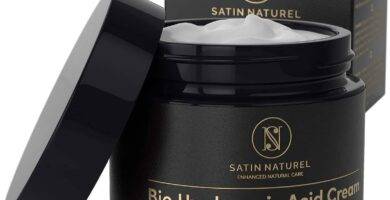
Vegan Hyaluronic Acid Facial Cream

Alhambra Vegan Perfume
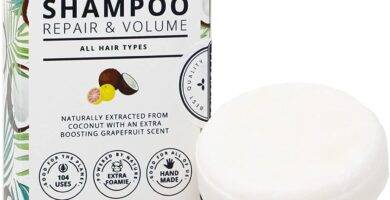
Vegan Shampoo
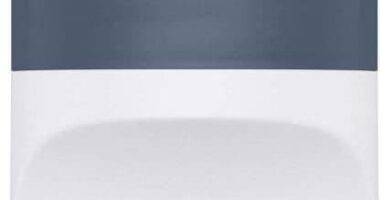
Vegan Deodorant
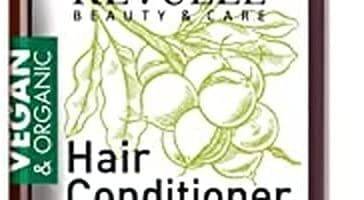
Vegan Hair Conditioner
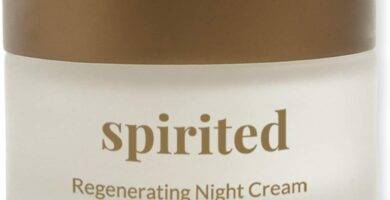
Vegan anti-wrinkle night cream
Remember your motivation
There is a big difference between a vegan lifestyle and a "diet."It is easy to be tempted to deviate from a diet plan or to "cheat," but this is something different from being vegan.
When you know exactly why you go vegan, you won't deviate from your lifestyle, which is why it's so important to know the benefits of a vegan lifestyle and to know the impact of animal products on our health, the environment and people.
Once one takes the time to recognize the true impact of animal products in our lives, it never stops and there is no turning back.
Plan your transition
- Go from vegetarian to vegan.
- Eliminate all meat from your diet including fish and poultry.
- Incorporate more whole grains, peas, tofu, nuts, seeds, etc...
- Once you feel comfortable, eliminate dairy and eggs from your diet.
Final tips
Step by step, whether it's going vegetarian, vegan or even reducing meat consumption in your diet.
Don't get overwhelmed, a vegan lifestyle requires a learning curve, take your time and learn from your mistakes.
Can you help us to share?

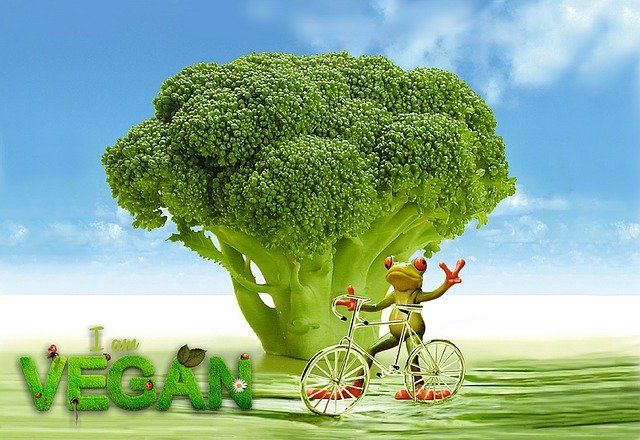

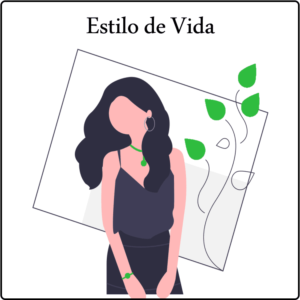
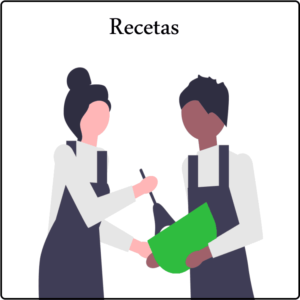
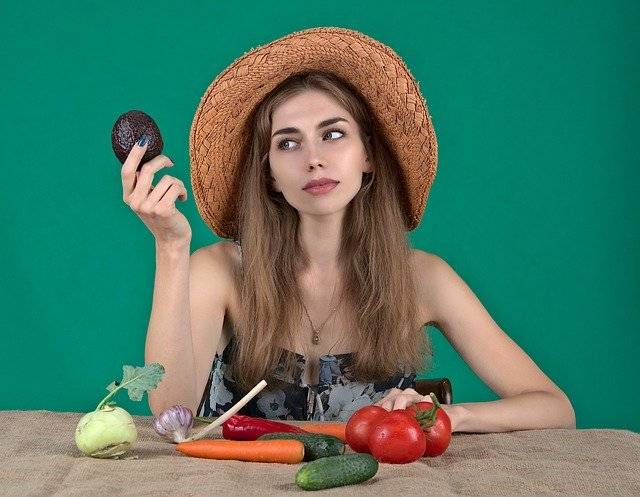

![Omega 3 Vegano AAVALABS [ 1500 mg ] - de Aceite de...](https://m.media-amazon.com/images/I/410wCrSEk8L._SL160_.jpg)



